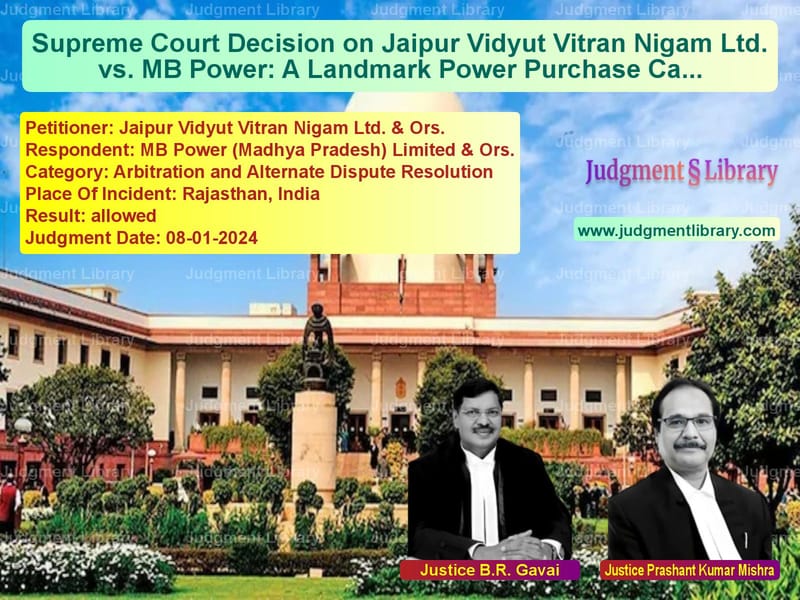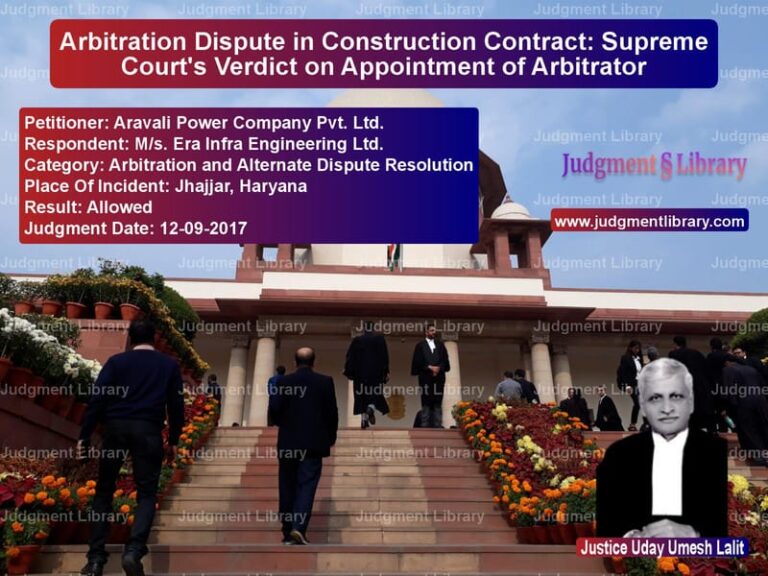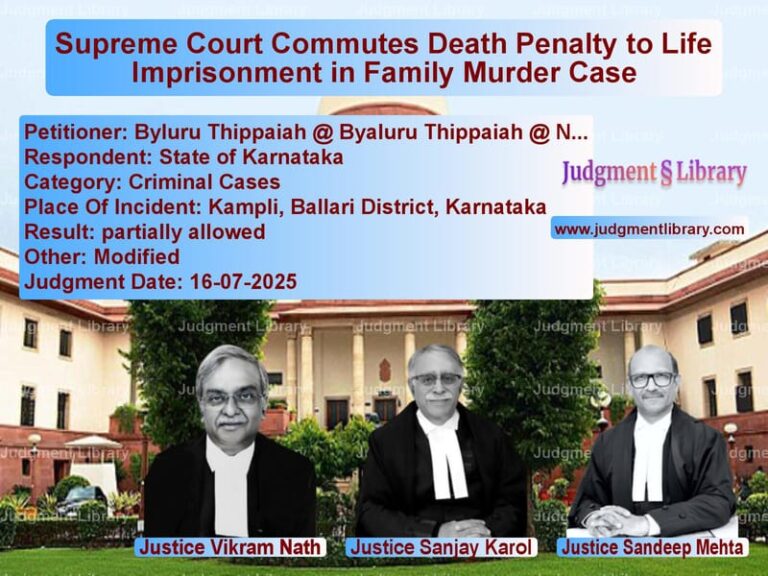Supreme Court Decision on Jaipur Vidyut Vitran Nigam Ltd. vs. MB Power: A Landmark Power Purchase Case
The recent Supreme Court decision in the case of Jaipur Vidyut Vitran Nigam Ltd. & Ors. vs. MB Power (Madhya Pradesh) Limited & Ors. sheds light on power procurement policies, competitive bidding, and consumer protection in the electricity sector. This case highlights key legal aspects regarding bidding transparency, power purchase agreements (PPAs), and regulatory oversight by State Commissions.
The primary dispute arose when MB Power, a power generator, claimed that it was entitled to supply 200 MW of electricity based on its participation in a competitive bidding process. However, the Rajasthan State Power Procurement Entities (DISCOMs) contested this claim, arguing that the tariff quoted by MB Power was not aligned with market prices.
Background of the Case
The litigation stemmed from a competitive bidding process initiated in 2012 by Rajasthan Rajya Vidyut Prasaran Nigam Limited (RVPN) for the procurement of 1000 MW of electricity. The bidding process followed the guidelines issued by the Government of India under the Electricity Act, 2003. MB Power participated in the bid through PTC India and was ranked L-7 in the bid evaluation process.
Key Legal Issues
- Whether the bidding process was transparent and aligned with market guidelines.
- Whether the State Electricity Commission had the authority to reject bids based on market alignment.
- Whether MB Power had a vested right to supply electricity despite not receiving a Letter of Intent (LoI).
Arguments of the Petitioner (Jaipur Vidyut Vitran Nigam Ltd.)
The DISCOMs contended that:
- The State Commission had the authority to reject bids that were not market-aligned under Section 86(1)(b) of the Electricity Act.
- MB Power was not a “successful bidder” as it was never issued a Letter of Intent.
- The High Court erred in entertaining MB Power’s writ petition, bypassing the regulatory framework of the Electricity Act.
- Allowing MB Power to supply power at a higher rate would burden consumers with increased electricity costs.
Arguments of the Respondent (MB Power)
MB Power argued that:
- The bid evaluation committee had already certified that the bidding process was transparent and in compliance with government guidelines.
- Their tariff of Rs. 5.517/kWh was competitive and aligned with market rates.
- The “bucket filling” principle mandated that all bidders must be considered until the required capacity was reached.
- The State Commission did not have the discretion to reject bids after they had been duly evaluated and ranked.
Supreme Court’s Observations
The Supreme Court analyzed several critical issues in the case:
- The Court held that the Electricity Act empowers the State Commission to regulate electricity procurement, including tariff approvals.
- It clarified that the role of the Commission under Section 63 is not merely procedural but requires an assessment of whether the discovered tariff is market-aligned.
- The Court noted that MB Power had remained inactive from 2015 to 2020 and had not sought remedy through regulatory authorities before approaching the High Court.
- The High Court erred in issuing a writ of mandamus compelling the State entities to purchase power from MB Power.
Supreme Court’s Judgment
The Supreme Court set aside the High Court’s decision, ruling in favor of Jaipur Vidyut Vitran Nigam Ltd. It concluded:
- The State Commission was justified in rejecting MB Power’s bid as not being market-aligned.
- The High Court should not have entertained MB Power’s writ petition as an alternative regulatory remedy was available.
- The State DISCOMs were not obligated to accept power procurement beyond the required capacity.
- Public interest and consumer protection should be prioritized in electricity procurement decisions.
Impact of the Judgment
This ruling reinforces the regulatory oversight of State Commissions in power procurement and tariff determination. It ensures that power purchases remain cost-effective and market-aligned to prevent unnecessary financial burdens on consumers.
By upholding the discretionary power of State Electricity Commissions, the Supreme Court has strengthened the transparency and competitiveness of the bidding process, ensuring a balance between generator interests and consumer protection.
Petitioner Name: Jaipur Vidyut Vitran Nigam Ltd. & Ors..Respondent Name: MB Power (Madhya Pradesh) Limited & Ors..Judgment By: Justice B.R. Gavai, Justice Prashant Kumar Mishra.Place Of Incident: Rajasthan, India.Judgment Date: 08-01-2024.
Don’t miss out on the full details! Download the complete judgment in PDF format below and gain valuable insights instantly!
Download Judgment: jaipur-vidyut-vitran-vs-mb-power-(madhya-pra-supreme-court-of-india-judgment-dated-08-01-2024.pdf
Directly Download Judgment: Directly download this Judgment
See all petitions in Arbitration Awards
See all petitions in Dispute Resolution Mechanisms
See all petitions in Enforcement of Awards
See all petitions in Settlement Agreements
See all petitions in Arbitration Act
See all petitions in Judgment by B R Gavai
See all petitions in Judgment by Prashant Kumar Mishra
See all petitions in allowed
See all petitions in supreme court of India judgments January 2024
See all petitions in 2024 judgments
See all posts in Arbitration and Alternate Dispute Resolution Category
See all allowed petitions in Arbitration and Alternate Dispute Resolution Category
See all Dismissed petitions in Arbitration and Alternate Dispute Resolution Category
See all partially allowed petitions in Arbitration and Alternate Dispute Resolution Category







